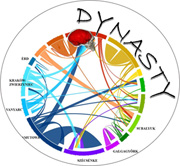THE PROJECT

In the fascinating history of humanity, the climate is crucial: it is the engine of human dispersals. Studying precisely the climatic crises that characterize the history of migrations in Europe, the DYNASTY project will investigate the past climate evolution and human responses to ecological changes by exploring sedimentary sequences and Neanderthal sites in Poland and Hungary with innovative multidisciplinary approaches.
The project DYNASTY aims to achieve an accurate and highly resolved time scale to reconstruct scenarios of human-environment interactions in the ~130–40 ka interval and resolving scientific debates through the solid cohesion of different disciplines. In the project, sedimentary sections (MIS 5e - MIS 3) from Poland and Hungary will be studied at high resolution combining up to date methodologies in magnetostratigraphy, OSL, and 14C dating with lithostratigraphic, paleopedologic, micromorphology, geochemical, and pollen information. Then, the excavation of key Neanderthals' sites from the same regions using advanced approaches will indicate the chronological and ecological relationships between climatic fluctuations and Neanderthals' settlement in Central Europe. The synchronization of the results with the Greenland ice cores will provide detailed records of climate variability, while the correlation with the Italian data will disclose the climatic impact on the European ecosystems from different latitudes.
For the first time, DYNASTY will create an integrated model combining paleoenvironment, paleoclimatology, geochronology, and archaeology in Central Europe, putting the team at the forefront of international research.
This unique project aims at applying cutting-edge methods from the fields of archaeology, paleoclimatology, geochronology, and geosciences to provide:
1) A thorough chronological reassessment of Neanderthals' settlements in southern Poland and the Pannonian Basin during the Late Middle Paleolithic.
2) A thorough understanding of the environmental and cultural causes that favored the resilience of Neanderthals in Central Europe.
3) An accurate reconstruction of the ecological dynamics in southern Poland and the Pannonian Basin during the Late Middle Paleolithic (MIS 5e - MIS 3).